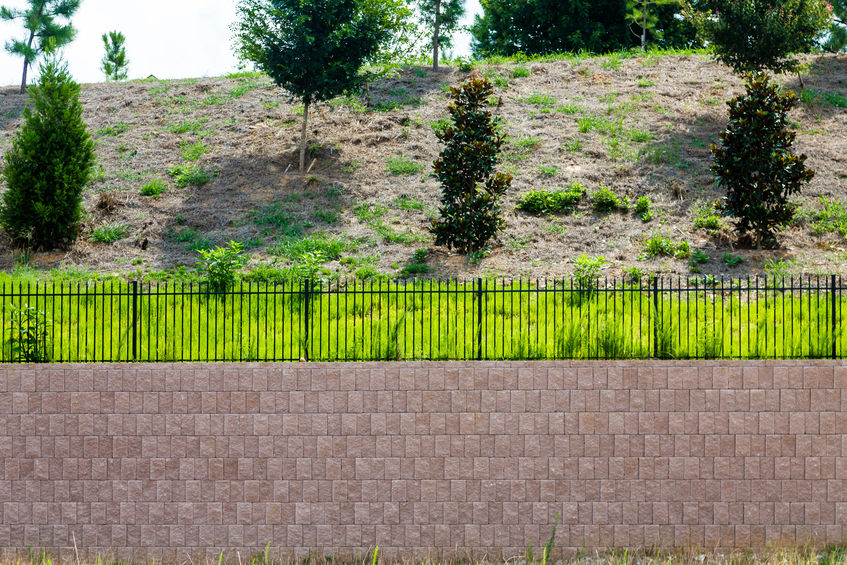Pros
- Highly Durable

Concrete block masonry walls are much stronger compared to homes built with wood or poured concrete. The holes inside the blocks can be filled with a reinforcing material to enhance their rigidity. Walls made of concrete blocks can withstand strong winds making them ideal for people living in areas that are prone to hurricanes and tornados.
- Fire-Resistant
The materials used to build concrete blocks are inflammable which makes them resistant to fire. It can withstand extreme hot or cold temperatures, unlike walls made of wood, which easily helps to spread fire because they are flammable. Poured concrete still does not stand up to the fire-resistant qualities of concrete blocks as it can crack and crumble under harsh conditions.
- Virtually Sound-Proof
Concrete block masonry walls block most of the sound if constructed properly with well-insulated doors and windows. It works great if you live in a busy neighborhood or you simply want to enjoy your privacy. Adding an acoustic slab can enhance the soundproofing capabilities of your concrete wall by filling any extra gaps that allow sound to pass in and out of the walls.
- Energy Efficiency
The thermal mass of concrete blocks helps to boost the energy efficiency of a building. Masonry blocks with a higher thermal insulation capacity reduce the costs of heating and cooling by minimizing energy consumption. You are likely to spend more on heating and cooling if you live in a home with walls made of wood, iron sheets, or other lightweight building material. Concrete block walls can help you save on your energy bills as they provide better insulation during extreme weather conditions.
- Resistant to Insects and Vermin
Vermin and insects cannot destroy concrete because it is inedible. Other softer building materials can be inedible but they may still provide pathways for insects. Concrete benefits from its thicker mass and hardness which makes it difficult for insects and vermin to bore through. It is considered more resistant compared to wood or bamboo.
Cons
- Prone to Water Damage
Although a concrete block masonry wall does not disappoint in terms of durability, it should be built perfectly from start to finish. This helps to maintain the integrity of your home’s foundation to avoid expensive repairs in the future. Water damage is a common problem for concrete-built homes especially if you live in an area with a high-water table. It is also important for your home to have an adequate draining system and waterproofing materials to help combat any potential water damage.
- Difficult to Fix Future Problems
Walls made of concrete require special tools to cut through if you want to tackle problems down the line. This can be expensive especially if you need plumbers or electricians to fix any future problems that may occur within the walls. This issue needs to be addressed during the initial stages of the build otherwise, you may have to spend more when handling problems that may occur in the future.
- It is Expensive
A concrete block is an expensive building material compared to drywall and wood framing. Apart from the upfront costs, you are also expected to pay more in terms of labor when hiring professional masons for the job. There are several factors involved in estimating the price of building your walls with concrete blocks and costs may vary depending on your location.
Although concrete block masonry walls are generally expensive compared to other alternatives like wood frame buildings, they are worth the investment in the long term. A home built on concrete can withstand strong winds and extreme weather conditions. Some of the issues you may experience when using concrete blocks can be mitigated if by building the right foundation depending on the location of your home and hiring skilled professionals for the masonry work.
